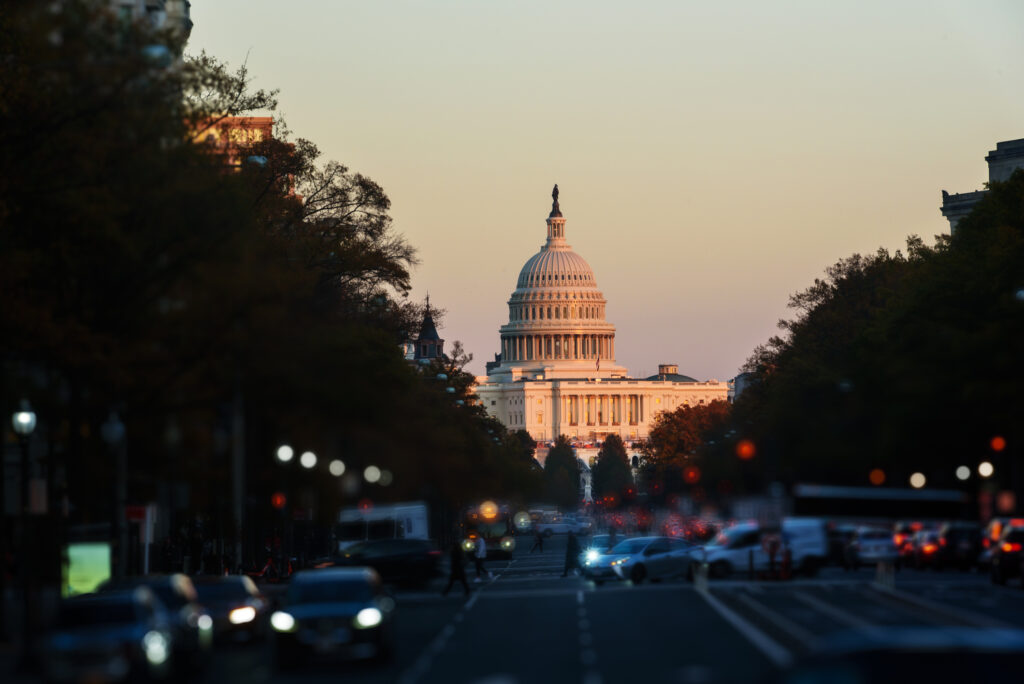A Michigan city has agreed not to use its expansive anti-discrimination law against two political strategists who argued the ordinance could require them to work for candidates with whom they vehemently disagree.
An Ann Arbor municipal ordinance outlaws discrimination “because of actual or perceived age, arrest record, color, disability, educational association, familial status, family responsibilities, gender expression, gender identity, genetic information, height, HIV status, marital status, national origin, political beliefs, race, religion, sex, sexual orientation, source of income, veteran status, victim of domestic violence or stalking, or weight.”
The law threatens a $500-a-day fine for violations. ThinkRight Strategies, a conservative political firm in Ann Arbor, hired the Alliance Defending Freedom (ADF) to challenge the statute in federal district court.
ThinkRight Strategies agreed to dismissal of their request for an injunction after the city stipulated the law does not apply to the firm because it isn’t a “public accommodation,” on September 5.
Political Snare
The founders of ThinkRight Strategies, Grant Strobl and Jacob Chludzinski, are consultants for conservative political campaigns, causes, and lawmakers. They offer a variety of services such as website design, event promotion, and speechwriting.
The city ordinance could have made the government the decision-maker for ThinkRight Strategies, says Strobl.
“Jacob Chludzinski and I have been involved in politics for years, and we formed ThinkRight Strategies to have a greater impact in that arena by providing a variety of advocacy services,” Strobl said. “But as written, Ann Arbor’s law makes it illegal for us to decide which political beliefs to advocate for.”
Preventive Action
To challenge the ordinance, the ADF, a legal organization that primarily advocates for religious liberty, brought a motion in federal district court to enjoin Ann Arbor from enforcing it, arguing the law violates ThinkRight’s First Amendment rights under the U.S. Constitution.
The law could be interpreted to force ThinkRight Strategies to promote a candidate whose beliefs directly contradict its mission, says Samuel Green, an ADF attorney who was part of the team representing ThinkRight in the case.
“The government cannot force people to promote beliefs that are not their own,” Green said.
Although the law had not been used against ThinkRight, it put the firm at risk, says Green.
“This lawsuit follows in a long line of civil rights cases,” Green said. “Instead of waiting to be punished, we file a lawsuit to prevent it.”
Constitutional Arguments
The lawsuit argues the government must not decide what people can and cannot say.
“Citizens should be free to choose for themselves what they say and what they celebrate—not the government,” the complaint states.
The Ann Arbor law conflicts with the First and Fourteenth Amendments to the U.S. Constitution, ADF states. Requiring individuals to promote any speech violates their rights to freedom of speech, freedom of association, freedom of the press, and due process, the complaint states.
There are several constitutional problems with the ordinance, says Lackland Bloom, a professor at Southern Methodist University’s Dedman School of Law and a policy advisor to The Heartland Institute, which publishes Budget & Tax News.
“The particular ordinance would seem to violate two significant First Amendment doctrines: the government may not compel a speaker to say something he chooses not to say, nor may the government discriminate against speech based on its viewpoint. The ordinance clearly violates both principles,” Bloom said.
Speech Takeover
The ADF is pursuing other cases against public accommodation laws that force business owners to express speech contrary to their own opinions. Ann Arbor’s agreement that the law doesn’t apply to ThinkRight is unusual because many city governments consider businesses to be public accommodations, says Green.
“We are pleased that Ann Arbor respects their decisions about which messages to convey,” Green said.
A category like “political beliefs” can result in threats to everyone’s First Amendment rights, says Green.
“[This law] could force a Democratic speechwriter to write a speech for President Trump,” Green said. “Or it could be a pro-life filmmaker who is forced to make an ad for Planned Parenthood.”
Such ordinances jeopardize freedom, says Strobl.
“If the government can hijack our speech, everyone’s freedom is at risk,” Strobl said.
History of Constitutional Violence
Bloom says it doesn’t surprise him that Ann Arbor’s progressive city council would pass a measure like this. When he was a law student there in the 1970s, the city government passed an ordinance banning discrimination based on “lifestyle,” says Bloom.
“That provision was intended to allow students to enter restaurants without wearing shirts or shoes,” Bloom said.
The current law has less to do with concern for the Constitution and more to do with politics, says Bloom.
“I don’t think they care at all about the constitutionality of their laws,” Bloom said. “They simply want to make a radical political statement.”
Government vs. Conscience
The point of this case is that the government cannot compel speech, says Green. In this and many other cases, ADF’s clients are not discriminating based on identity and are only refusing to voice a belief that would violate their consciences, says Green.
“ThinkRight will gladly serve people of all backgrounds,” Green said. “But they will not promote a message against their convictions.”
Juliana Knot ([email protected]) writes from Grand Rapids, Michigan.




